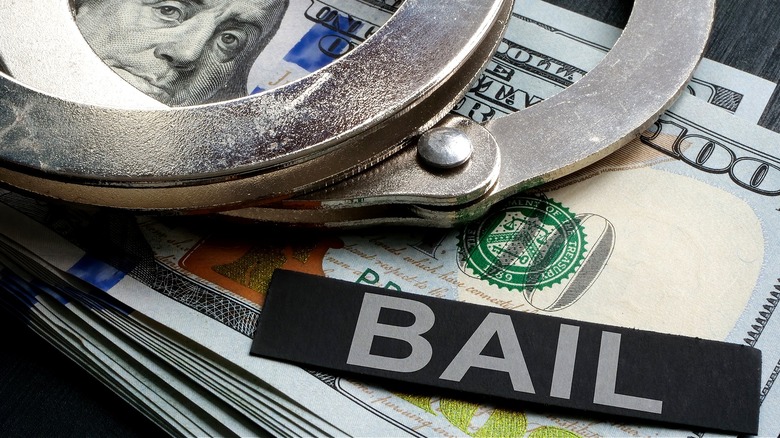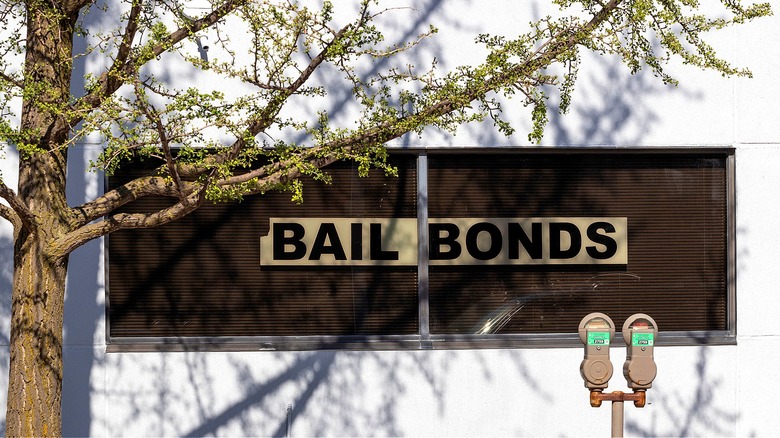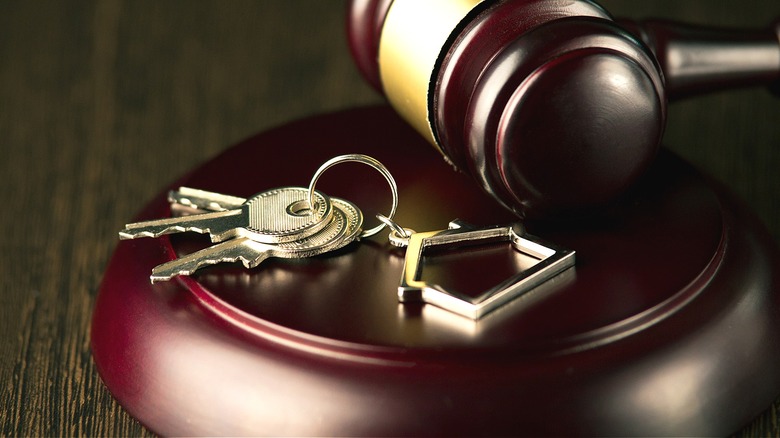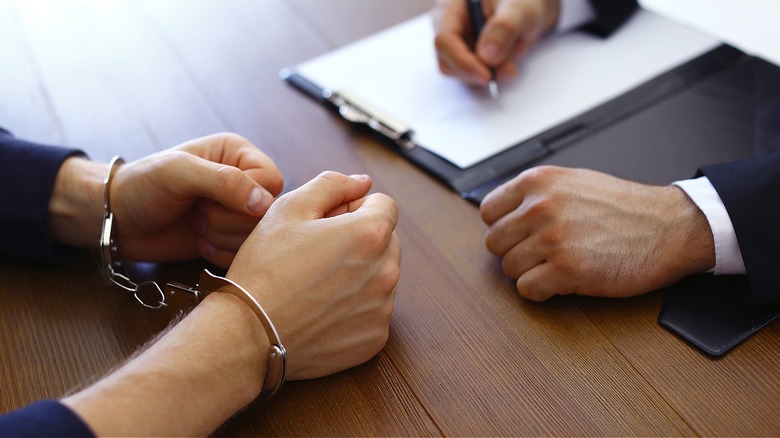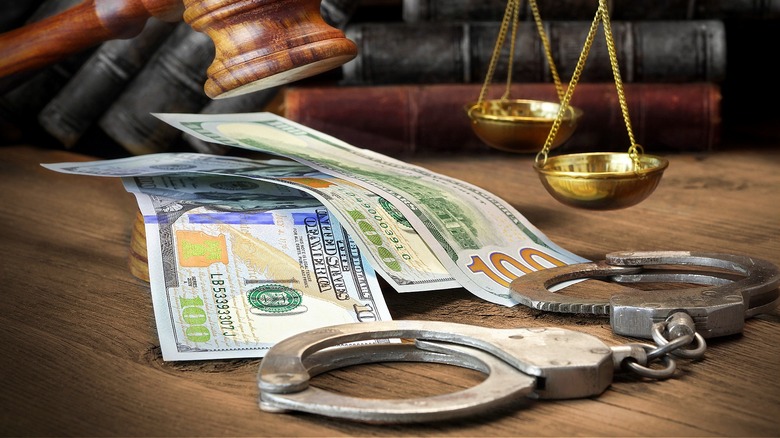Do You Get Bail Money Back?
As the American Bar Association states, bail isn't a fine. It's money (cash or something of value in place of cash) posted by defendants in order to be released from custody and "out on bail" until their case concludes. Per the Eighth Amendment of the United States Constitution, a person's bail cannot be excessive: "Excessive bail shall not be required, nor excessive fines imposed ..." The purpose of bail is to financially incentivize a defendant to meet the conditions of their release; that is, make all their court dates. This said, if bail isn't a fine, does that mean you get bail money back? It depends; on how the bail was paid and if all conditions are met.
Bail can be paid in cash, but the amount must be paid in full. Alternatively, a surety bond can be posted on behalf of the defendant, usually 10% of the full bail amount. If the defendant doesn't meet the conditions of their release, the person who put up the bond must then pay the court the full bail amount. A property bond is another way to post bail, but not all states use it, and in those that do, what's accepted as property varies. In California, for example, the only acceptable property is real estate.
Cash bail
If a defendant posts their bail with cash, they can get the full amount back once their case concludes, if they meet all their court dates and any other conditions of release. Again, cash bail must be paid in full at the time it's posted. As a result, for many, this isn't a viable option. According to a 2022 report by the U.S. Commission on Civil Rights, more than 60% of the defendants in the United States can't afford to post bail, which leaves them in custody for their entire pretrial. In September 2023, Illinois became the first state to abolish the cash bail system.
Note that while you can get your money back with this form of bail payment, you may not get it all back. Administrative fees and/or fines could be applied, especially in the case of conviction. As for how you're refunded, typically, a check is sent to the depositor after the disposition of the case. The refund process for bail money can take anywhere from 30 days to a few months.
Surety bond
If a defendant is unable to post their full bail in cash, they could purchase a bond from a bail bond company. To do so, they'd pay a premium — generally equal to 10% of the full bail amount, though this varies by state — as well as put up some type of collateral as further insurance. For example, if the bail is set at $5,000, a person would pay the bail bond agency $500, then put up collateral worth $5,000, like a car title. Note that the bond premium is nonrefundable, so, in the case of a bail bond from a bail bond agency, you won't get your bail money back.
Once the bond is purchased, the bail agent will post bail on the defendant's behalf and guarantee to the court that the person will make all court appearances. If the defendant fails to show, then the bail bond company is responsible for paying the court the full bail amount. In such a case, the collateral will be forfeited.
Note, you can get your bail money back from a bond if you're able to finance it through the courts. Certain states, such as Kentucky, Maine, Nebraska, and Oregon, don't allow commercial bail bonds; instead, offering an alternative through the courts. As with a bail bond company, you would still pay a premium of 10%, but as with cash bail, a court-financed surety bond is refundable so long as you meet all the conditions of your release.
Property bond
In the case of property bonds, a defendant can put up property to post their bail. Not all states use property bonds, and what sort of property can be used as collateral also varies in the states that do. For example, while one court might accept valuable personal property (e.g., artwork), another may only accept a home or other real estate. What's more, some jurisdictions will only accept property that exceeds the bail amount (e.g., in California, the property must be worth twice as much). This said, before a property is accepted, there must first be a hearing where the property's value will be assessed. Documentation, such as a car title or a house deed, will be required.
As with a cash bond, you could get your bail money back with a property bond. However, to do so, you must meet all court appearances and any other conditions of release. If you fail to show, then the posted property will be forfeited, and the court will take the property as if it were cash.
Personal recognizance bond
A personal recognizance bond, or PR bond (or release on recognizance), allows a defendant to be released without having to post bail. In such cases, after reviewing a person's background, including their criminal history, ties to the community, and any threat to the community, a judge may find the person can be released on their own accord. With a PR bond, no payment is made so there's no bail money to get back; however, a person could still lose money if they don't comply with the signed agreement.
With a PR bond, the defendant must sign an agreement saying they will make their court dates. In other words, all other conditions of a bail remains, only the defendant doesn't have to post bail to get out of custody pretrial. In some instances, there could be a fine attached, too, if the person doesn't meet the conditions of their release. For example, if the PR bond agreement stipulates a penalty of $1,000 for a nonappearance, then you could be out this money if you fail to make your court date.
Posting bail
While judges ultimately set bail amounts, there are bail schedules for common crimes that make it possible for someone to post bail quickly following an arrest. To post bail, a defendant doesn't need a lawyer to handle it. The defendant or a family member or bond seller can arrange for the bail to be paid. If a person is unable to make their bail, they could request the amount be lowered, either at a bail hearing or during their first court appearance.
As for paying for bail, most forms of payment are accepted, including cashier's or certified check, money order, and credit or debit card. You could also, as noted, post bail using valuable property in the states that allow property bonds. If you're eligible to get your bail money back, as in the case of a cash bond or court-financed bond, the most important thing is to make all court dates. Some states don't allow any grace when it comes to court appearance(s). If you fail to appear, not only can your bail money or collateral be forfeited, but a warrant could be issued for your arrest and your pretrial release could be revoked entirely.

